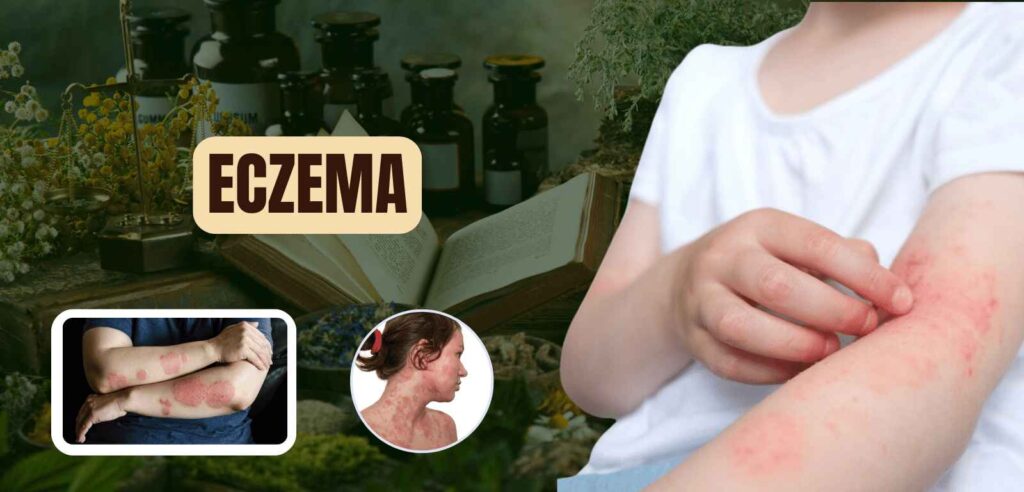
Eczema
Eczema, also known as atopic dermatitis, is a skin disorder that causes itching and redness. It is most frequent in children, but it can happen at any age. Eczema is a chronic condition that flares up from time to time. Asthma or hay fever may accompany it.
Eczema symptoms vary from person to person, however, they commonly include:
The actual cause of eczema is unknown, but it is assumed to be caused by an excessive immune reaction to an irritant. This reaction is what produces eczema symptoms. Furthermore, eczema is frequently observed in families with a history of allergies or asthma.
Submit An Inquiry
Contact Us
Timing
- 1:00 PM To 6:00 PM
Visit Clinic
1. Dry skin: When skin is dry, it becomes rough and scaly.
2. Itching: This can be excruciating, especially at night.
3. Red to brownish-gray patches: These can appear on the hands, feet, ankles, wrists, neck, upper chest, eyelids, inside the elbow and knee bend, and, in babies, the face and scalp.
4. Small, raised bumps: When scraped, these may leak fluid and crust over.
5. Thickened, cracked, or scaly skin: Repetitive scratching or rubbing can cause the skin to thicken over time.
6. Raw, sensitive, and swollen skin from scratching: Frequent scratching can cause skin to become raw, sensitive, and swollen.
It is thought to be caused by a mix of genetic, environmental, and immune system factors. Here are some of the possible causes and risk factors:
1. Genetics: Eczema frequently runs in families, and specific genes have been identified that may predispose a person to acquiring the condition.
2. Immune Dysfunction: An excessive immune system reaction to specific triggers can cause inflammation and eczema symptoms.
3. Environment: Eczema is more common in cities and in colder climes.
4. Skin Barrier Defects: Eczema patients frequently have a skin barrier that is less effective in keeping allergens and bacteria out and moisture in.
5. Allergens: Certain allergens, such as dust mites, pet dander, pollen, and mold, can cause eczema flare-ups.
6. Irritants: Certain substances or environmental factors, such as wool, synthetic materials, soaps, detergents, sweat, and heat, can irritate the skin and cause eczema.
7. Stress: While stress does not cause eczema, it can aggravate or provoke it in some people.
8. Infections: Bacterial, viral, and fungal infections can cause or worsen eczema.
It is critical to understand that eczema is not contagious and cannot be passed from person to person.
- For Clinic visits: E-16/30, Sector – 8, Rohini, Delhi – 85
- For Teleconsultation: 927-874-1850
- Email: info@vaidmishraji.in
- Timing: Mon-Sat (1:00 PM – 6:00 PM)
Patient Testimonial


